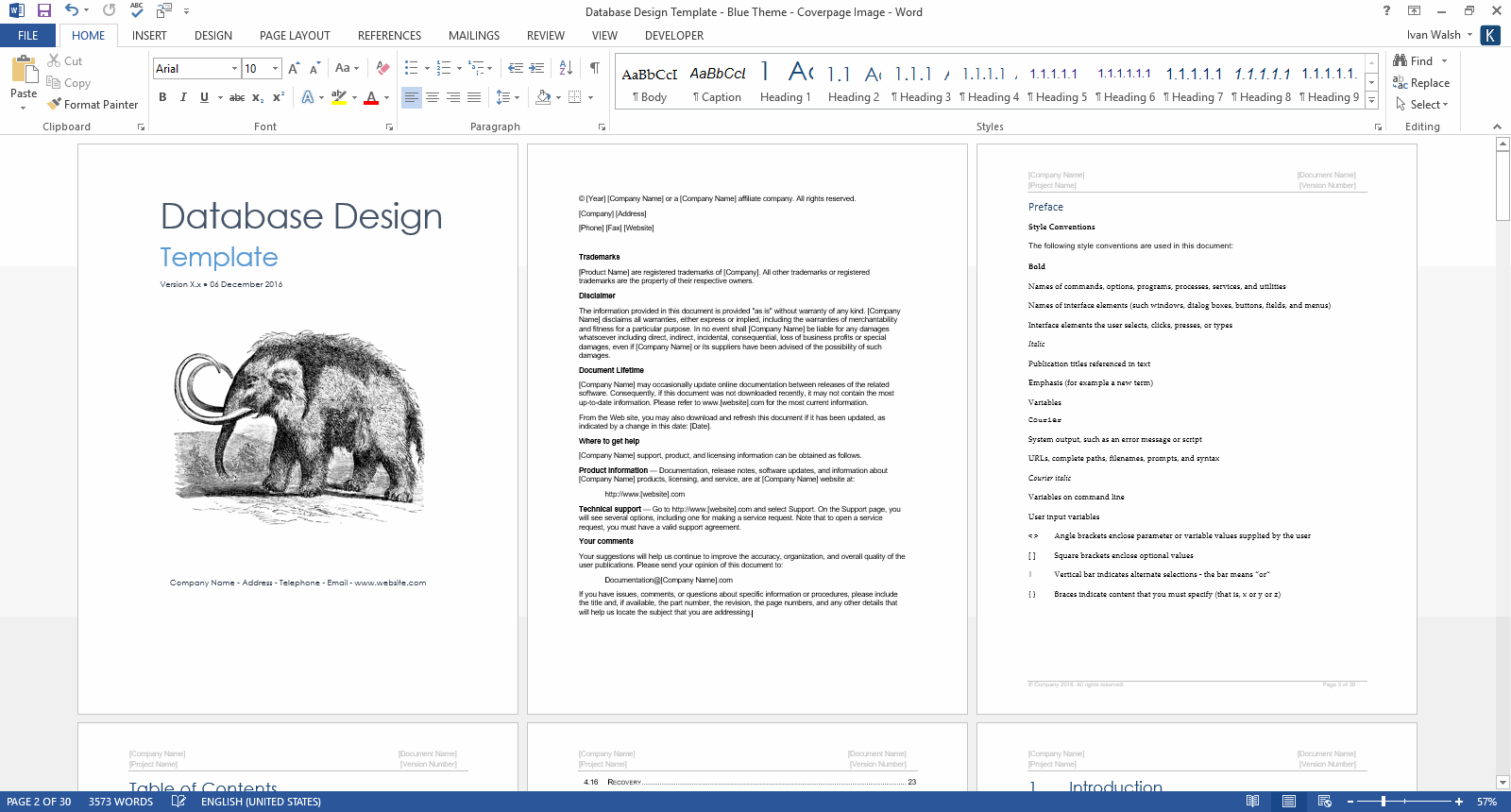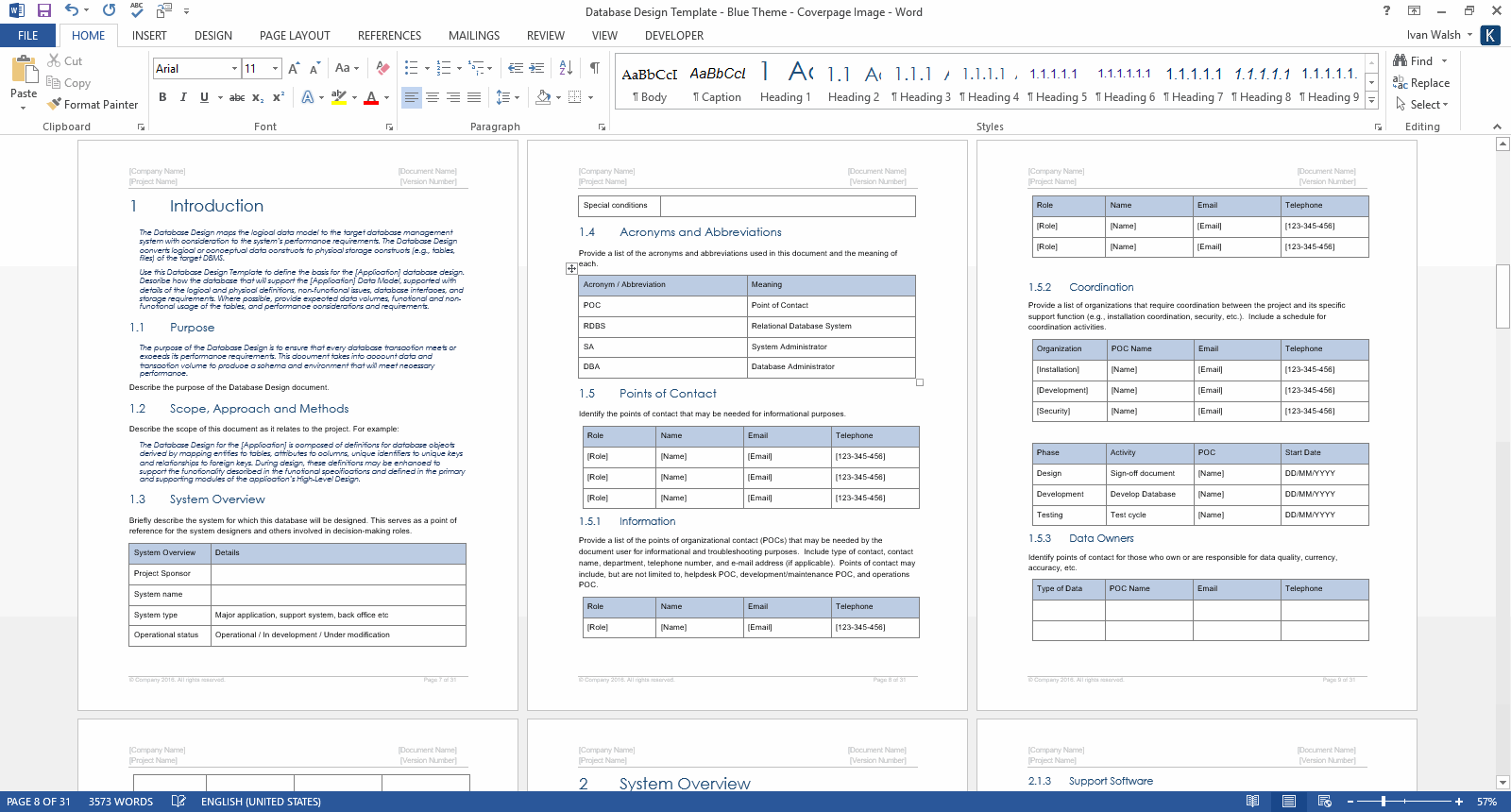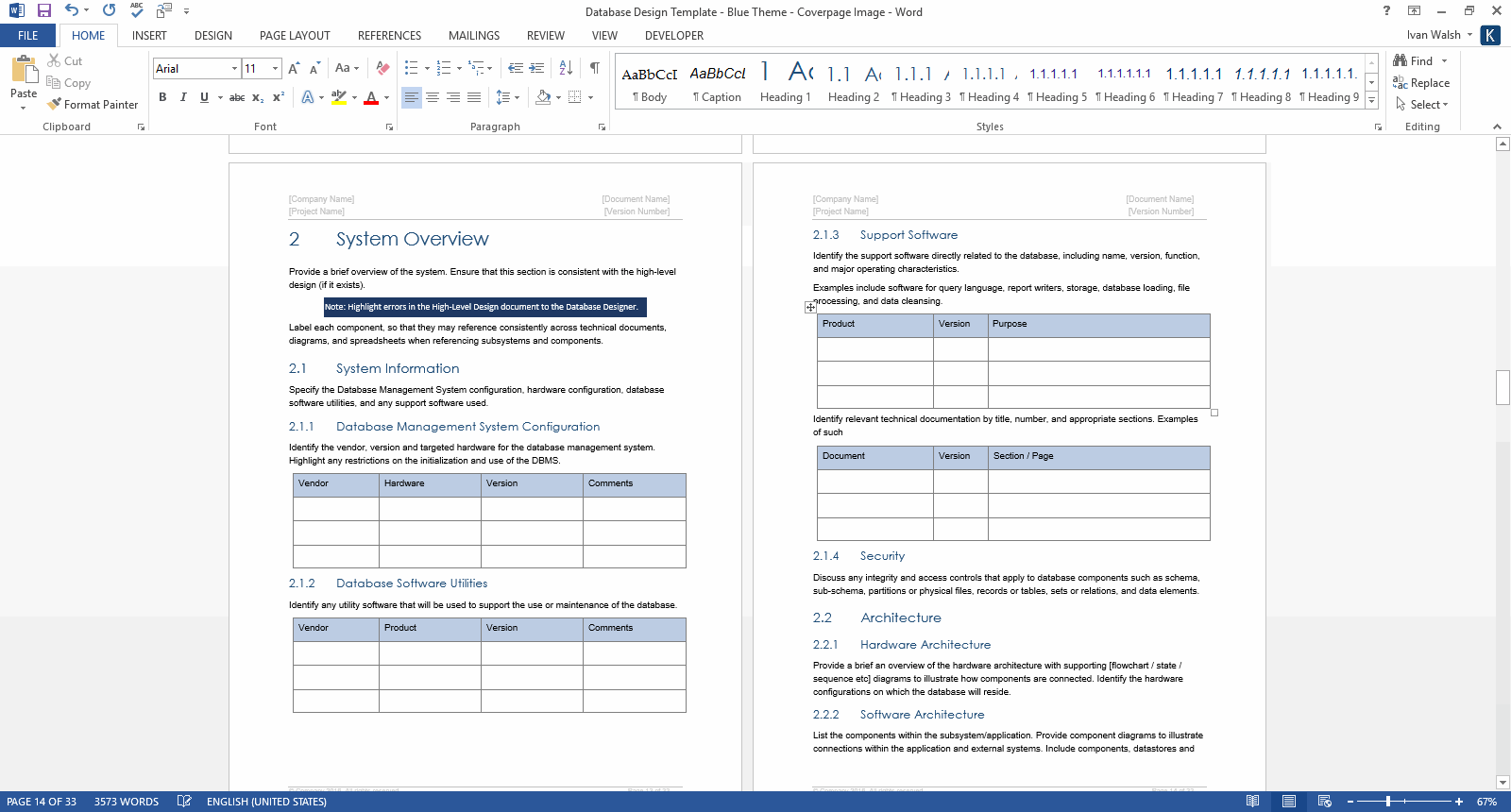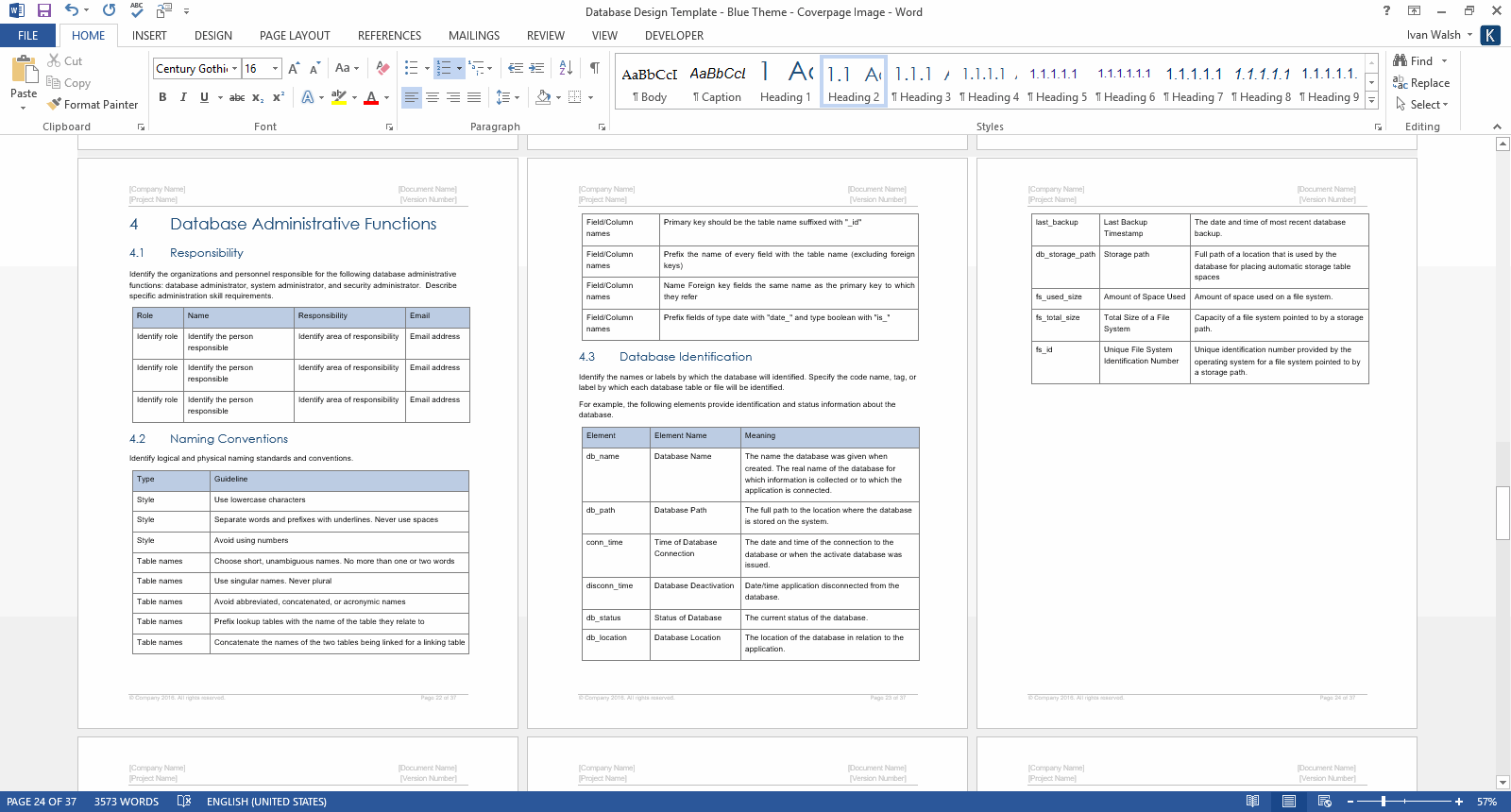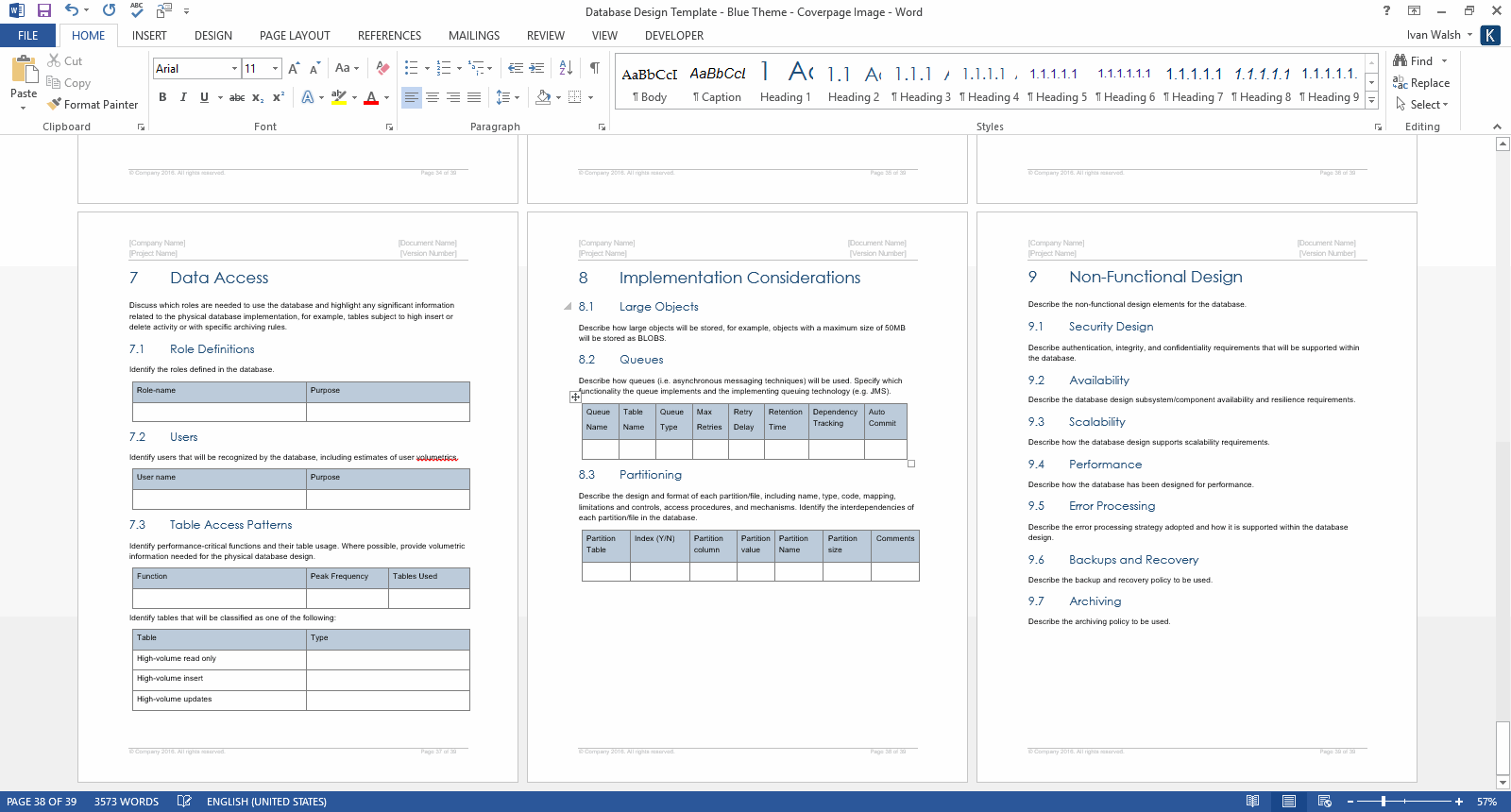You can use this Database Design Document template to map the logical data model to the target database management system with consideration to the system’s performance requirements. Use this template to:
- Define the basis for the application’s database design.
- Provide expected data volumes, functional/non-functional usage of tables.
- Ensure database transactions meets or exceed performance requirements.
Database Design Document Template: Red MS Blue Theme
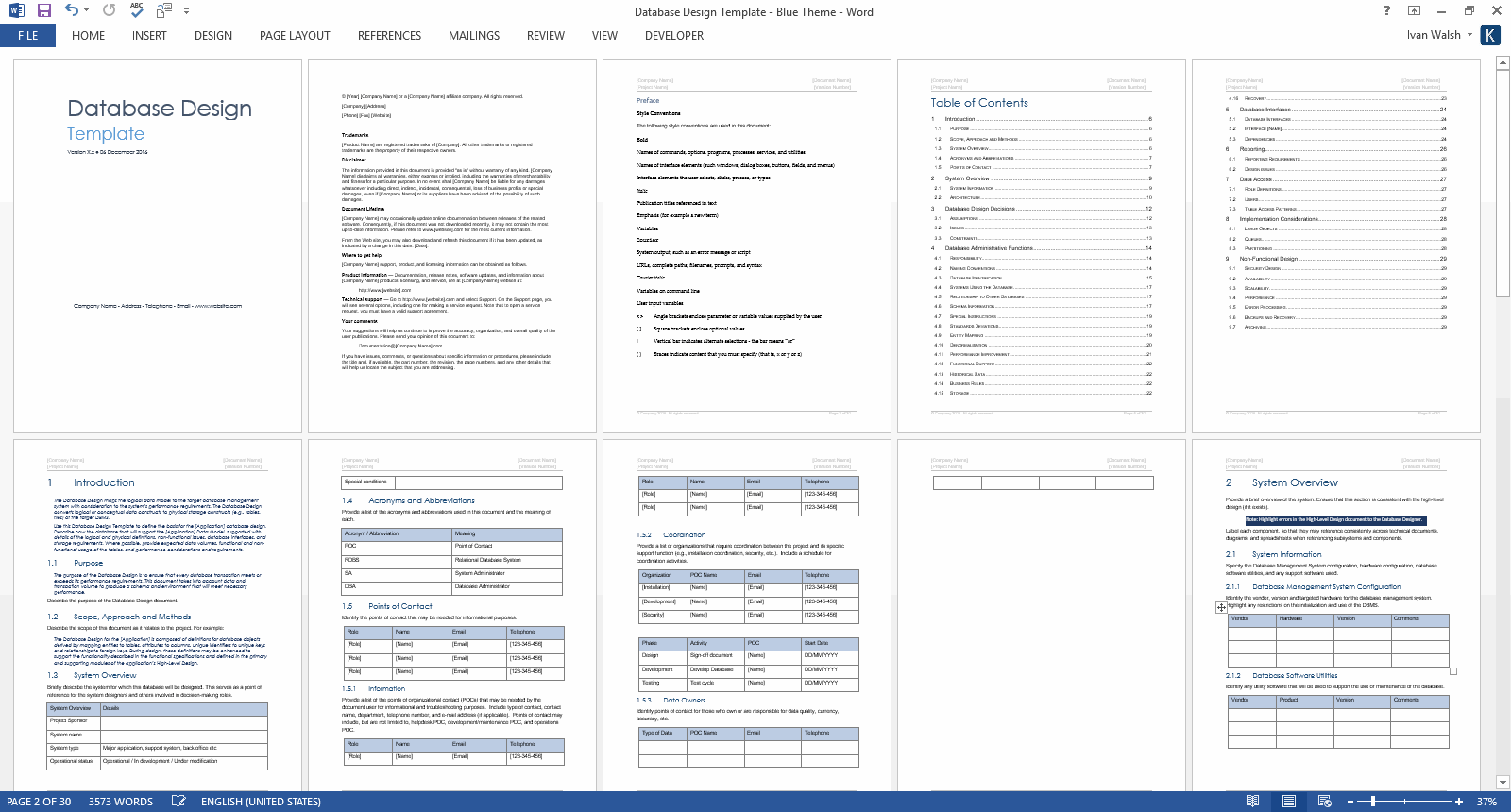
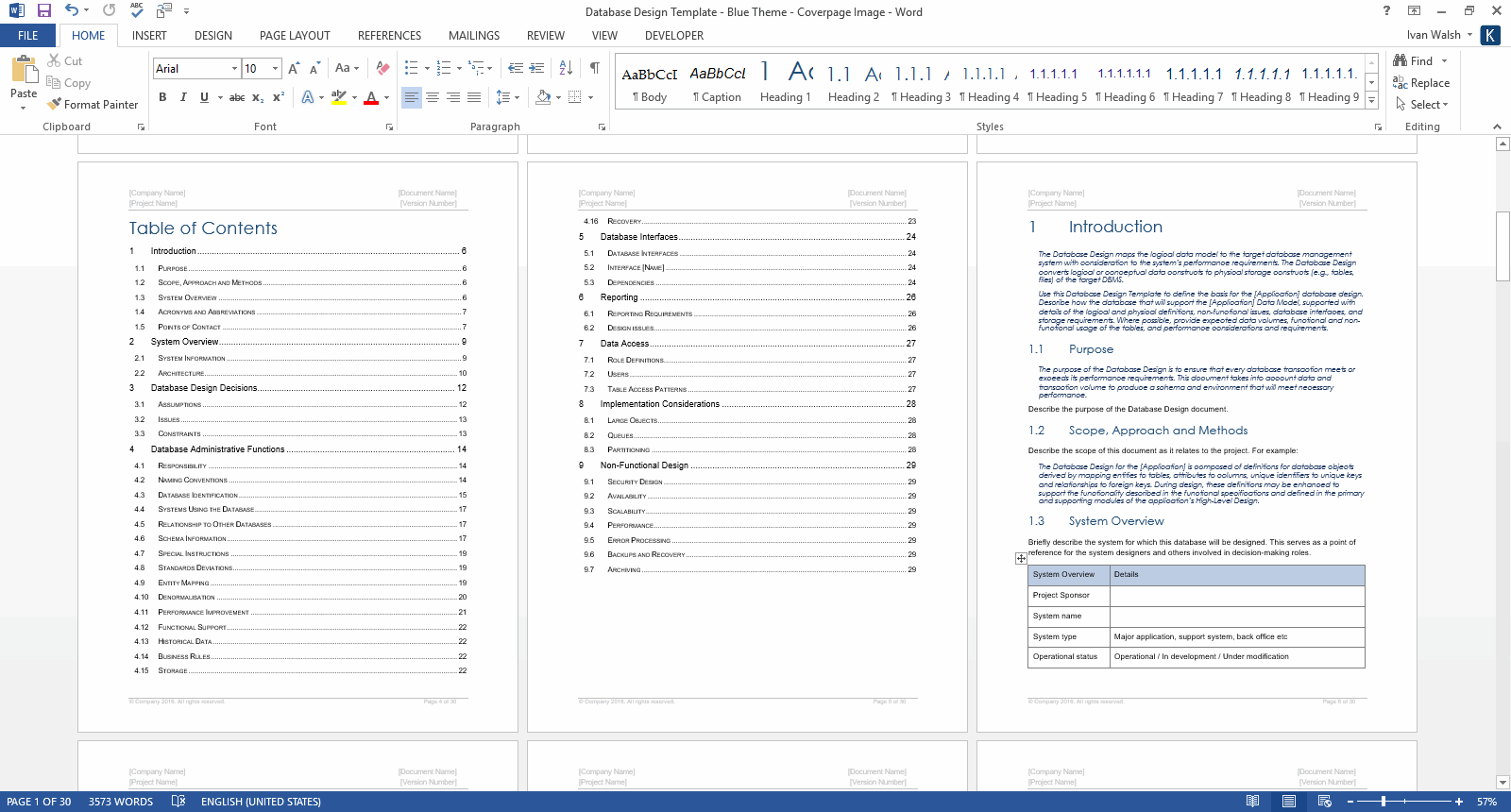
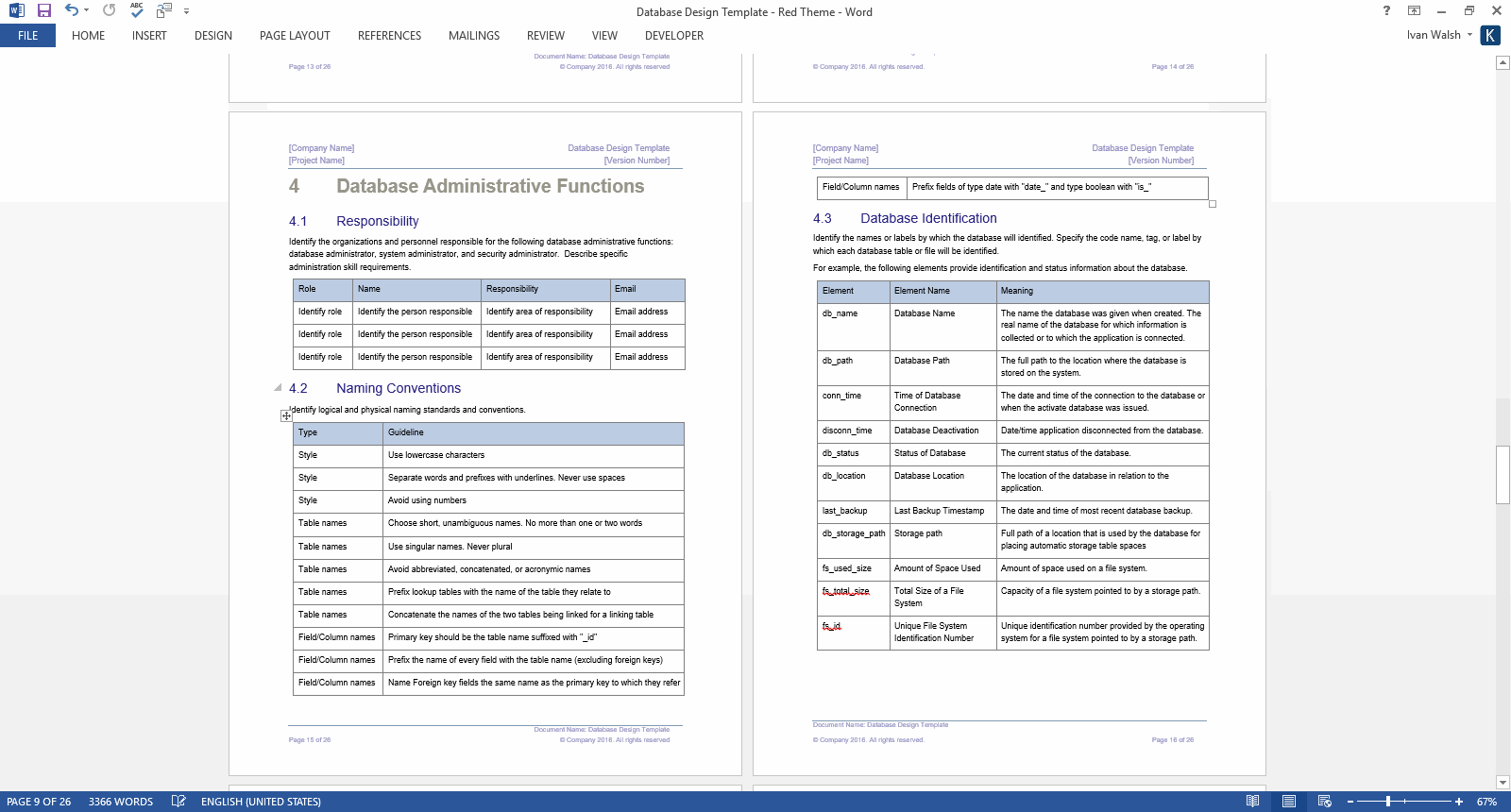
Database Design Document Template: Red MS Word Theme
This Database Design Document (DDD) converts logical data constructs to the tables and files of the target DBMS.
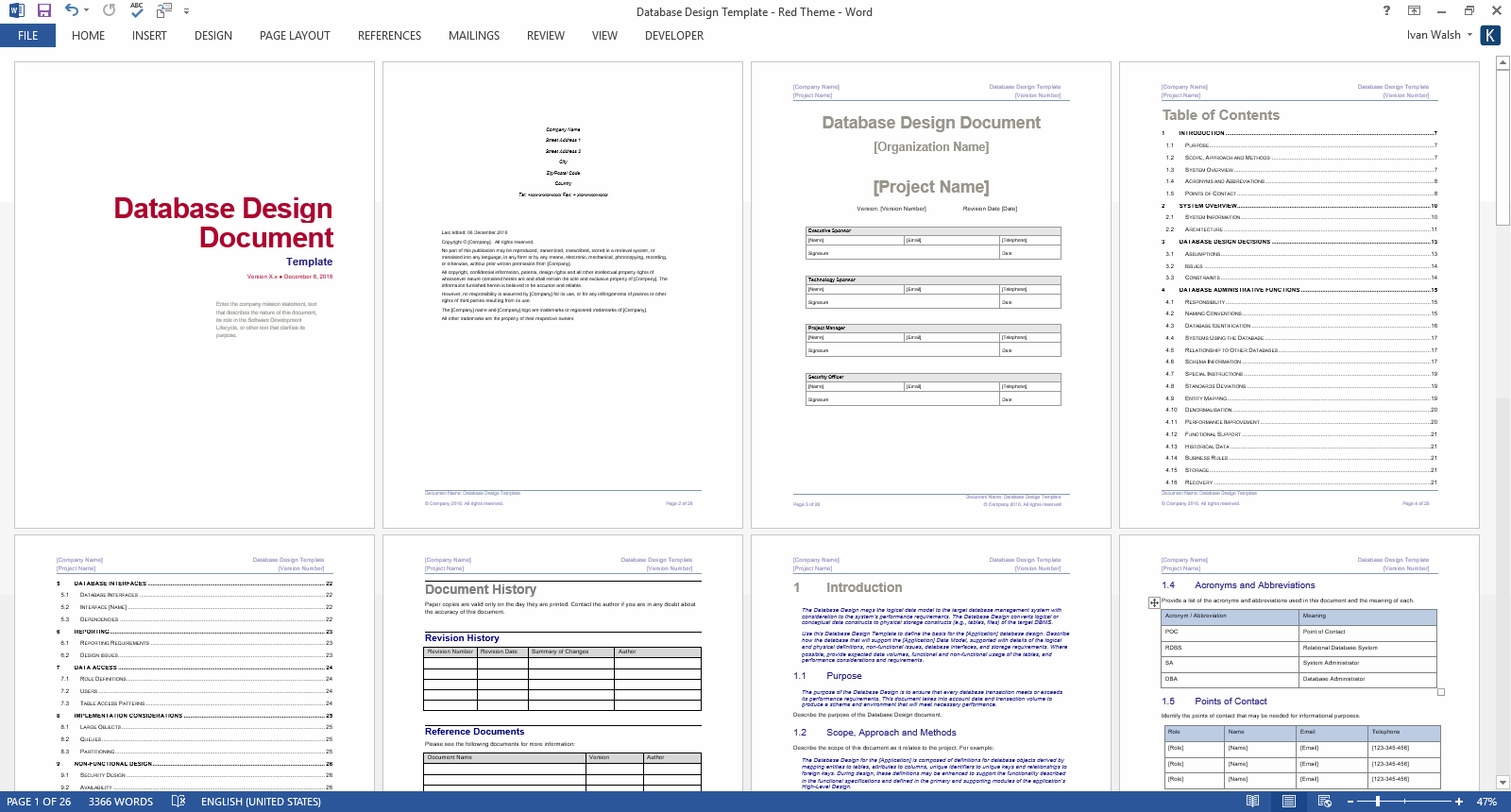
Database Design Document: Free Data Model Template
This Database Design Document template includes a free Data Model spreadsheet which you can modify for your next project. It comes with sample data to help you get started.
Data Model template in MS Excel
Database Design Document Template: Table of Contents
This Database Design Document template includes the following chapters, sections and sample text.
1 Introduction
1.1 Purpose
1.2 Scope, Approach and Methods
1.3 System Overview
1.4 Acronyms and Abbreviations
1.5 Points of Contact
1.5.1 Information
1.5.2 Coordination
1.5.3 Data Owners
2 System Overview
2.1 System Information
2.1.1 Database Management System Configuration
2.1.2 Database Software Utilities
2.1.3 Support Software
2.1.4 Security
2.2 Architecture
2.2.1 Hardware Architecture
2.2.2 Software Architecture
2.2.3 Interfaces
2.2.4 Datastores
3 Database Design Decisions
3.1 Assumptions
3.2 Issues
3.3 Constraints
4 Database Administrative Functions
4.1 Responsibility
4.2 Naming Conventions
4.3 Database Identification
4.4 Systems Using the Database
4.5 Relationship to Other Databases
4.6 Schema Information
4.6.1 Description
4.6.2 Physical Design
4.6.3 Physical Structure
4.7 Special Instructions
4.8 Standards Deviations
4.9 Entity Mapping
4.9.1 Mapping rules
4.9.2 Entities and Attributes Not Implemented
4.9.3 Non-trivial Mapping
4.9.4 Additional Objects
4.9.5 Key mappings
4.9.6 Other Deviations
4.10 Denormalisation
4.11 Performance Improvement
4.12 Functional Support
4.13 Historical Data
4.14 Business Rules
4.15 Storage
4.16 Recovery
5 Database Interfaces
5.1 Database Interfaces
5.1.1 Operational Implications
5.1.2 Data Transfer Requirements
5.1.3 Data Formats
5.2 Interface [Name]
5.3 Dependencies
6 Reporting
6.1 Reporting Requirements
6.2 Design issues
7 Data Access
7.1 Role Definitions
7.2 Users
7.3 Table Access Patterns
8 Implementation Considerations
8.1 Large Objects
8.2 Queues
8.3 Partitioning
9 Non-Functional Design
9.1 Security Design
9.2 Availability
9.3 Scalability
9.4 Performance
9.5 Error Processing
9.6 Backups and Recovery
9.7 Archiving
Database Design Document Template: Format & Content
The templates in this Database Design Document are in Microsoft Word and Excel format (.doc & .xls) can be downloaded online for only $4.99. The template pack includes the following documents:
| 2 x Database Design Document templates | 26 pages each | |
| Data Model | 1 Spreadsheet |

